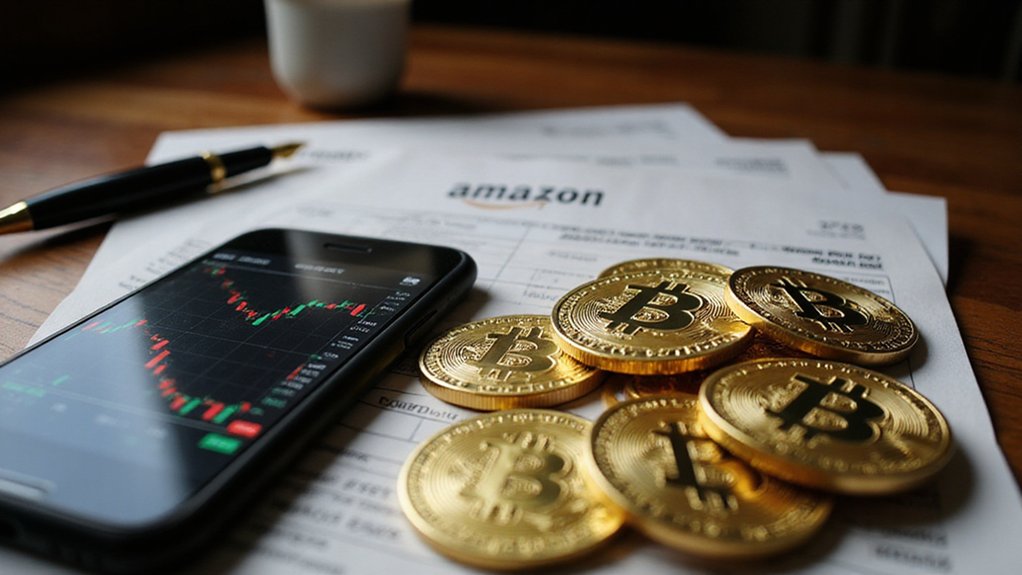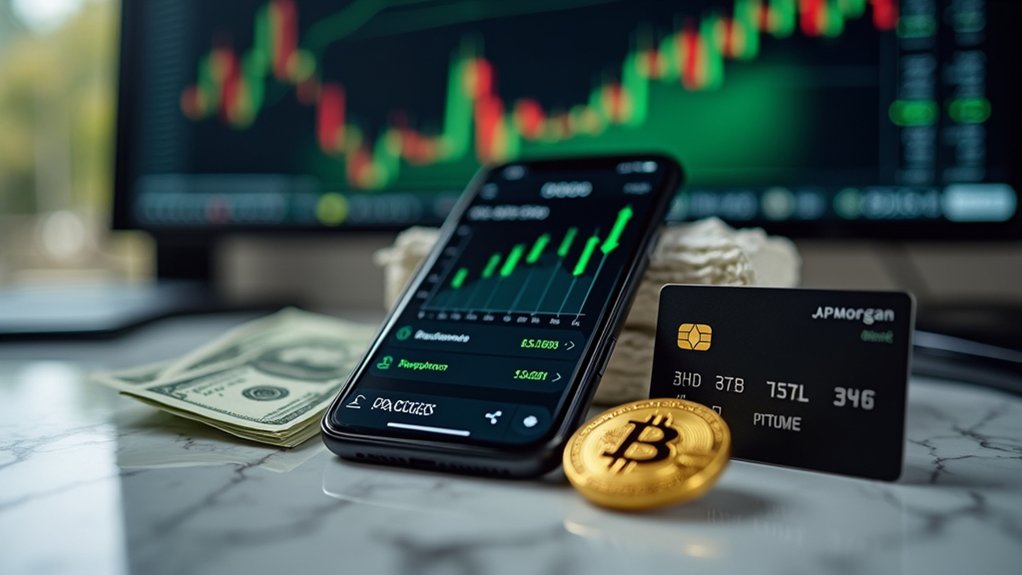A growing number of investors are discovering that they can now own a piece of Amazon without actually owning Amazon stock—a development that somehow manages to be both revolutionary and perfectly absurd in equal measure.
These tokenized stocks, trading under symbols like AMZNX and DAMZN, represent blockchain-based tokens that track Amazon’s share price through the peculiar alchemy of decentralized finance.
Blockchain transforms traditional equity ownership into digital tokens, creating a curious hybrid between Wall Street convention and cryptocurrency innovation.
The mechanics are straightforward enough: platforms like Solana, Ethereum, and DeFiChain issue tokens backed by actual Amazon shares held in custody by regulated institutions. Investors can purchase fractional ownership starting at $1, accessing Amazon’s price movements without traditional brokerage fees or the inconvenience of owning the underlying asset.
The blockchain facilitates real-time settlement and trading, creating what proponents describe as democratized market access.
Yet this accessibility comes with notable caveats that warrant careful consideration. Tokenized stock holders typically forfeit voting rights and dividend payments—those quaint privileges that once defined equity ownership.
More concerning is the potential for significant overvaluation, where speculation and crypto market volatility can inflate prices well beyond their traditional counterparts. The possibility of overpaying by 300% becomes less theoretical when considering how cryptocurrency markets occasionally operate according to their own interpretive understanding of value.
The regulatory landscape adds another layer of complexity. While tokenized stocks comply with traditional securities regulations through custodial backing, they simultaneously exist within the relatively uncharted territory of decentralized finance protocols.
This dual existence creates unique opportunities for integration with DeFi platforms while introducing risks that traditional equity markets have yet to fully contemplate.
Market volatility represents perhaps the most significant concern, as tokenized stocks reflect both Amazon’s corporate performance and broader cryptocurrency market conditions.
This dual exposure can amplify price swings in ways that may surprise investors accustomed to traditional equity behavior. Unlike traditional stock markets, tokenized stocks provide 24/7 trading capabilities, allowing investors to buy or sell at any time regardless of market hours.
The technology itself remains sound—blockchain guarantees secure ownership records and transparent transactions.
However, the economic implications of bridging traditional finance with cryptocurrency markets continue evolving. As adoption grows, these instruments may increase market efficiency and liquidity, though whether they represent genuine innovation or elaborate financial engineering remains an open question worth pondering. Given the speculative nature of many crypto investments, investors should consider the importance of diligent record-keeping when tracking transactions across decentralized platforms for tax purposes.









